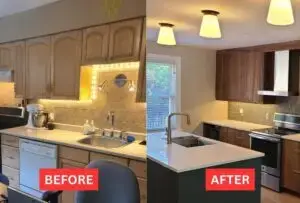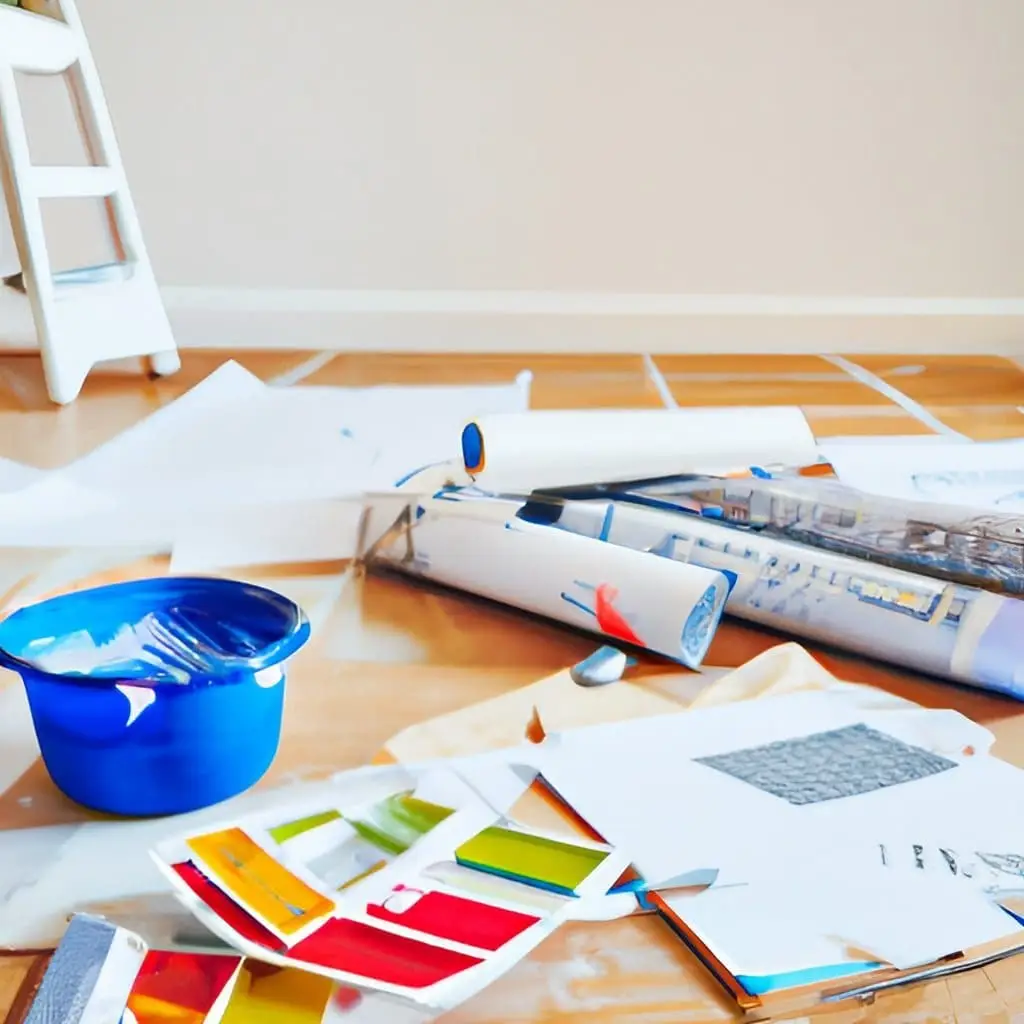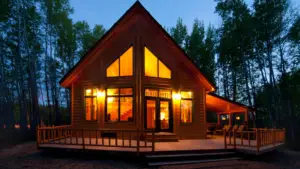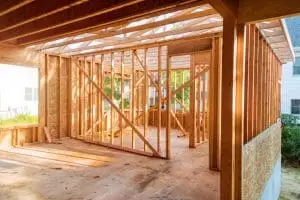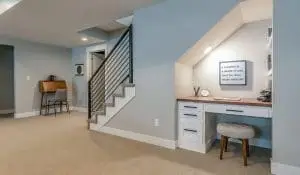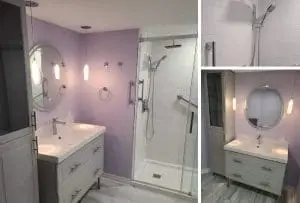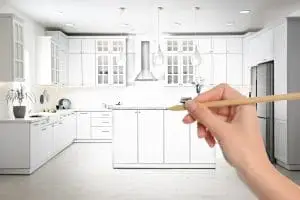Planning a home renovation can be an exciting time. After all, who doesn’t love the idea of coming home to a brand-new kitchen or bathroom? But before you start tearing down walls and selecting fixtures, there are a few things you need to do to set yourself up for success. Here are 15 things to do before any home renovation.
1: Set a Budget
One of the first things you need to do before starting any home renovation is to set a budget.
This will help you determine what projects you can realistically afford to take on and also help keep
costs under control during the renovation process. When setting your budget, be sure to account for both the cost of materials and labor.
2: Choose the Right Contractor
If you’re planning on doing any major renovations, chances are you’re going to need some help from a professional contractor.
Choosing the right contractor is crucial to ensuring that your renovation goes smoothly. Be sure to get multiple bids from different contractors and ask each one for references from previous clients.
Once you’ve narrowed down your options, be sure to have a detailed contract in place that outlines the scope of work and sets expectations for both parties.
3: Get Your Permits
Depending on the nature and scope of your renovation, you may need to obtain one or more permits from your local municipality before work can begin.
Failure to do so could result in costly fines or even stop your renovation in its tracks. If you’re unsure whether or not you need a permit, your contractor should be able to advise you.
4: Prepare Your Home
Once you’ve chosen your contractor and obtained all the necessary permits, it’s time to start preparing your home for the renovation process.
This typically includes moves such as clearing out closets and removing carpeting or other flooring. It’s also important to make sure that any furniture or valuables that will remain in the house during the renovation are properly protected from dust and debris.
5: Pick Out Materials
One of the most exciting parts of any home renovation is picking out materials such as flooring, fixtures,
cabinets, etc.
But before you head out to your local home improvement store, it’s important to do your research and select materials that fit both your budget and style preferences. Once you’ve got an idea of what you want, be sure to get samples so that you can see how they look in person before making any final decisions.
6: Know Your End Goal
Before starting your renovation project, you need to have a clear end goal.
For example, are you renovating to raise the resale value of your home, or do you plan on staying put for many years to come?
Are your renovations for comfort above all else, or do you want to add more functionality? (i.e., adding more space to your kitchen or reimagining your basement into a guest bedroom suite).
It’s imperative to know precisely what you want before you get started.
Also, take the condition of your neighborhood into account, as that will help you determine which renovations are appropriate and which would be overdoing it for the area.
7: Ask for References
If you’re selecting a contractor to handle your home renovations, don’t be shy about asking them for references.
A reliable contractor will have no issue with providing references as well as a copy of their liability insurance. If they refuse your request, that’s a sign that they aren’t trustworthy. Besides asking for references, you should also look up customer reviews for their business on third-party websites.
The last thing you want is to wind up with a general contractor that does shoddy work or doesn’t have insurance, so make sure you do your research.
8: Pack Up Your Things
It’s best to declutter the renovation space to ensure your renovations go off without a hitch. Make a pass through the area and pack up anything that’s in the way.
For instance, if you’re renovating your kitchen, pack up all your cooking utensils, silverware, spatulas, as well as any appliances that may be in the way. Also, check for any wires sticking out that may serve as trip hazards and tuck them out of the way.
Your contractors will definitely appreciate being able to work in a clean, decluttered space. That also reduces the risk of trips and falls, so packing up is a must.
9: Audit Your Personal Belongings
For insurance purposes, it’s wise to audit your personal belongings before the renovation process begins.
It serves as a way to protect yourself should anything get broken or misplaced during renovations. Beyond that, it’s always good to have a list of your valued items on hand should anything happen, whether it’s related to your renovations or not.
Creating a list of all your belongings will also make the renovation space easier to clear out.
When taking inventory, decide if there’s anything that you want to get rid of to add more space. Doing so will make the renovation space nice and tidy while helping you get rid of unwanted junk, so it’s a win-win.
10: Consider Your Pets
When undergoing renovations, it’s crucial not to forget about your pets. If they’re going to stay home while the work is getting done, consider their needs.
Dogs and cats may find the experience stressful, or they may want to bother the new visitors to your home.
That’s why it’s a good idea to have a friend or family member pet-sit for you while the renovations are underway. You can also designate an area of the home where you’ll keep your pets, such as a bedroom or the basement. To ensure they aren’t stressed, have one of your family members stay in the room with them.
11: Designate a Home Base
Home renovations can sometimes be chaotic due to the loss of a key room (and function) in your home.
For example, kitchen renovations will make it difficult to prepare meals while the work is getting done.
To remedy this, designate a space in your home that will be renovation-free, and set up a ‘home base’ there. If your kitchen is out of commission, then you can equip your living room or bedroom with a hot plate, kettle, and microwave to compensate.
Ultimately, it’s good to have a designated spot where you and your family can unwind and relax while the renovations are in progress.
12: Schedule a Cleanup
This tip is if you plan on handling the renovations yourself, as most professional renovators will clean up before leaving your home.
The last thing you want is to leave your home in a state of disarray, as that can potentially be dangerous. For instance, leaving power tools lying around is a trip hazard, so don’t forget to put them away when you’re done for the day.
Not only that, but wood shavings and debris can make it difficult for your family to breathe, so it’s worth firing up the vacuum to get them out of the way.
If your renovations are going to make quite a mess, it can be worth hiring cleaners to come and tidy up once you’re done.
13: Plan for Outages
Certain types of renovations will involve shutting off the water and power to specific areas of your home.
That means you may be without running water or electricity for a period of time during your renovations. As such, you should prepare for these in order to maintain your daily routines without any encumbrances.
If you’re going to be without water, plan ahead and fill up some containers for drinking, bathing, and flushing the toilet. You can also fill up your bathtub to have a reservoir of water to use during the renovations.
For no electricity, stock up on candles and flashlights so you’ll be able to see when it gets dark. You can also use a backup generator to power one area of your home while work gets done elsewhere.
14: Check the Weather
While it may seem unnecessary,
checking the weather forecast for your renovation days is a crucial step.
Even if you’re going to renovate during the spring or summer, you can’t expect perfect weather for your renovation days. That’s why you need to check both the long-term and short-term forecasts before booking your renovations.
Also, if your renovations will require losing electricity, it’s best to avoid doing that on days that are excessively hot or cold, as you’ll be without AC/heating.
15: Consult the Calendar
If you don’t plan your renovations in advance with a calendar, all sorts of complications may arise.
For example, the last thing you want is to be in the middle of monitoring renovations only to realize that you have to leave for an urgent work conference halfway around the world.
There are also holidays and vacations to consider, so always consult your calendar before booking renovations.
Planning a home renovation can be an exciting time but there are definitely some things you need to do beforehand to set yourself up for success. From setting a budget and choosing the right contractor, to getting permits and picking out materials, following these 5 tips will help ensure that your next home renovation goes off without a hitch!
Why wait, contact us today (613)727-9427
